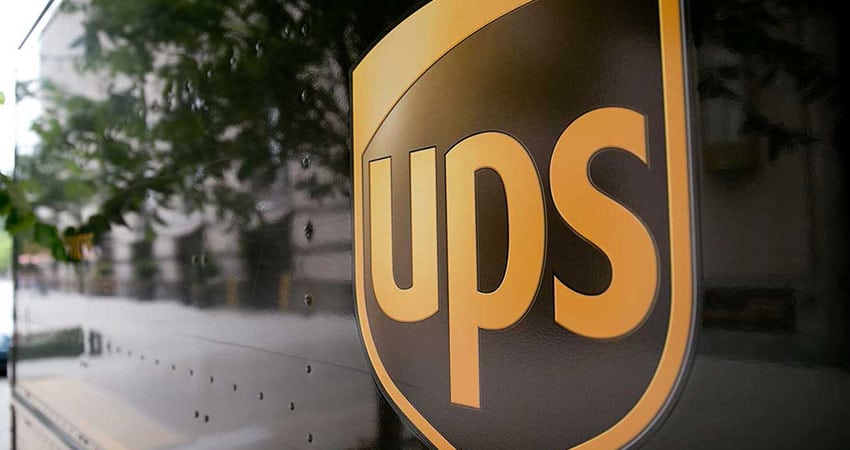UPS has filed a U.S. patent application for a technology that would use blockchain and its shared distributed ledgers to more efficiently track and manage packages shipped within its network as well as those handed off to other carriers worldwide.
The application, filed earlier this year but just made public this week, details challenges that the technology would solve for, including coordinating handoff of overseas shipments among different providers while also guaranteeing maintenance of special handling conditions throughout the journey from seller to buyer.
While most shipments are carried within a single carrier’s network, “… there may be scenarios in which it is advantageous for various logistics service providers to transport the shipment unit along different legs/segments from its origin to its destination” the patent authors state, especially when going cross-border or to remote regions. “However, it may be difficult to coordinate the transportation of the shipment unit through the various logistics service provider transportation networks.”
A driving force behind the application are demands for greater tracking and supply chain visibility, without added costs, by both shippers and consumers.
“As new shipment unit transportation methodologies such as (crowdsourced delivery networks) become more commonplace, a need exists for verifiable … shipping and tracking visibility systems … for units transported and/or exchanged within a single carrier … and/or exchanged between multiple carriers,” according to the patent authors.
Per the patent application, shipment units would generate transportation data that is stored on blockchain, allowing easily sharable tracking data so that different parties along the supply chain could make sure handling requirements were met.
Using a capability called “automated determination,” when a package is scanned at any point the blockchain system can automatically determine the best or most efficient route by drawing on data from all the connected carriers. The blockchain ledger can also record when the package arrives, allowing the system to rate whether a particular carrier met its service level agreement.
The patent also indicates that the system could tap into interlocked distributed ledger technology networks (DLT) – the basis of blockchain – and their smart contracts to automatically transfer value among multiple parties within the supply chain, once the system confirms that obligations were met (i.e., a leg of the journey completed, temperature maintained, etc.). The value transfer could even use cryptocurrency systems such as Bitcoin if public blockchain networks are used.
“UPS has been a technology company since its founding in 1907 and innovation is in our DNA,” said company spokesman Kyle Peterson. “We continuously look for ways to improve the efficiency of our operation. We believe blockchain is a disruptive technology that has potential to change many facets of life and global commerce. But we don’t have any specific projects to announce today.”
Like rival FedEx, UPS is a member of the Blockchain in Trucking Alliance (BiTA), an industry standards council with representatives from hundreds of logistics, transportation, software and manufacturing companies working to advance use of the technology in supply chain networks. FedEx has also had blockchain startups joining its FedEx Institute of Technology at the University of Memphis.

